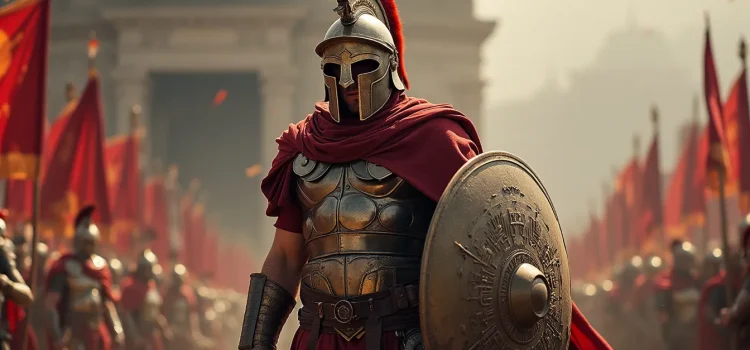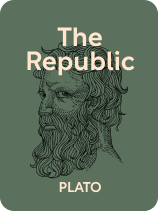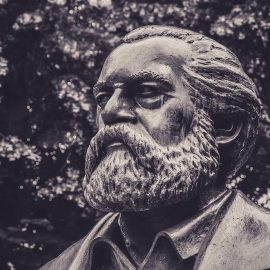

This article is an excerpt from the Shortform book guide to "The Republic" by Plato. Shortform has the world's best summaries and analyses of books you should be reading.
Like this article? Sign up for a free trial here.
What’s the connection between military prowess and political power? What happens when a society values honor above all else?
In The Republic, Plato introduces the concept of timocracy through his character Socrates. According to Plato, a timocracy is a society where military achievement and honor are the primary drivers of political power.
Continue reading for details about this political system and the potential pitfalls of prioritizing martial values over philosophical wisdom.
Plato on Timocracy
According to Plato, a timocracy is a society where politics revolve around military prowess and honor. In a timocracy, military and political offices are the same, and rulers are judged by their military successes.
The ideal city starts becoming a timocracy when, by chance, there’s a generation of less competent rulers and protectors. They’ll provide inferior education to the next generation, starting a cumulative decline. This eventually leads to rulers and protectors who venerate the physical and military ideals of the city but lack philosophical knowledge. Without this knowledge, they can’t understand who belongs to which class. Incorrectly assigning citizens will cause civil strife, and the timocratic rulers and protectors will have to enforce stability through violence and oppression against the workers.
(Shortform note: Plato directly references Sparta with his description of timocracy. Sparta’s culture highly valued military service and prowess in battle, and its society consisted of a relatively small aristocratic elite holding a much larger number of slaves. Spartan society was also obsessed with tradition. Plato seems to admire the Spartans quite a bit—more so than the democratic society of Athens—given how close he puts their society to the ideal city.)
The Timocratic Man
Plato, through the character of Socrates, describes the timocratic man as good-natured, conflicted, and ambitious. He wants to be excellent and values his physical and military training. His father—a philosopher—teaches him to avoid the corruption of public life and that goodness is reached through reason and knowledge. However, the rest of society judges his father harshly for his lack of military prowess and honor. The timocratic man tries to avoid this judgment while also maintaining some of his father’s principles. This middle ground between the desire for glory and the desire for goodness is ambition and a competitive drive.
The timocratic man also secretly desires wealth and the luxuries it provides. This is because his inferior education never convinced him that wealth corrupts—it just forced him to give it up.
(Shortform note: Some scholars argue that Glaucon represents the timocratic man, noting how Plato repeatedly emphasizes his bravery and military prowess throughout The Republic. In addition, Glaucon is the most closely associated with Socrates of all the other characters—the dialogue starts with him and Socrates together. Viewed from this perspective, Socrates spends The Republic attempting to elevate Glaucon from timocrat to philosopher by proving to him the value of a just, philosophical life. Whether or not Socrates succeeds is a topic of debate among scholars, as there are few surviving records of Glaucon’s later life.)

———End of Preview———
Like what you just read? Read the rest of the world's best book summary and analysis of Plato's "The Republic" at Shortform.
Here's what you'll find in our full The Republic summary:
- Plato’s concept of justice
- Why living a moral life is good for its own sake
- How later philosophers interpreted and responded to the ideas in The Republic






